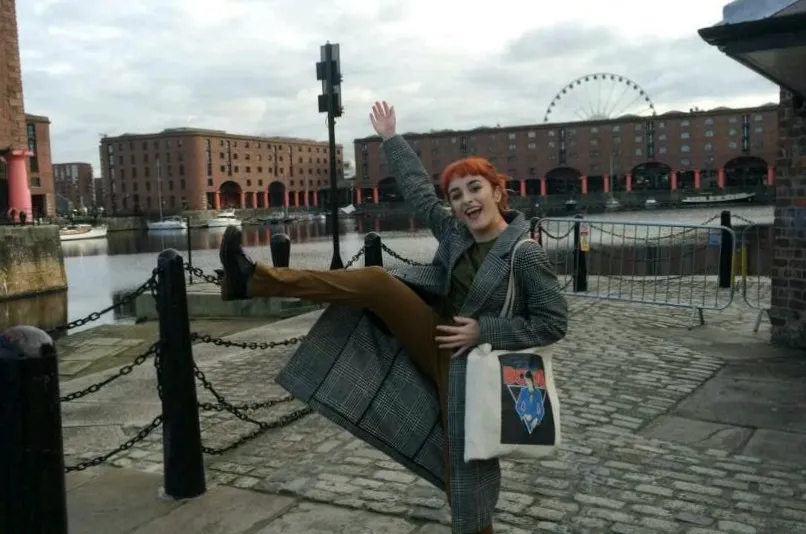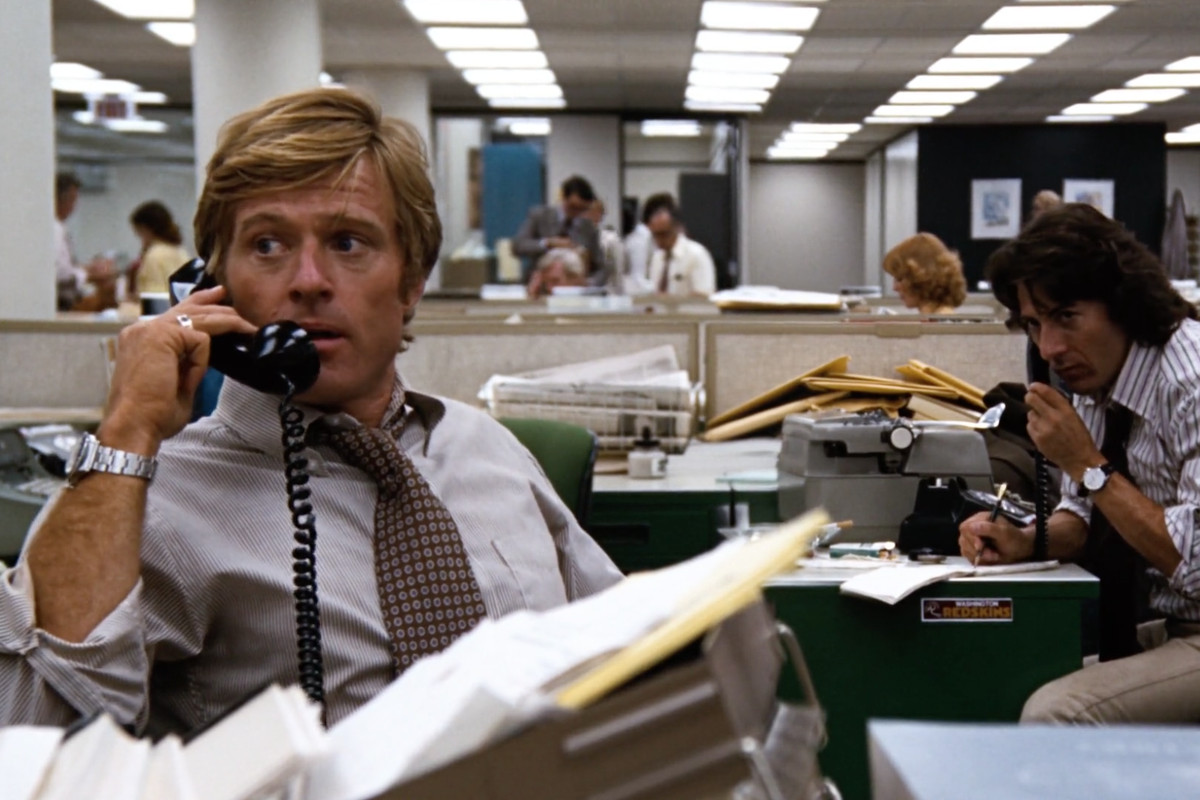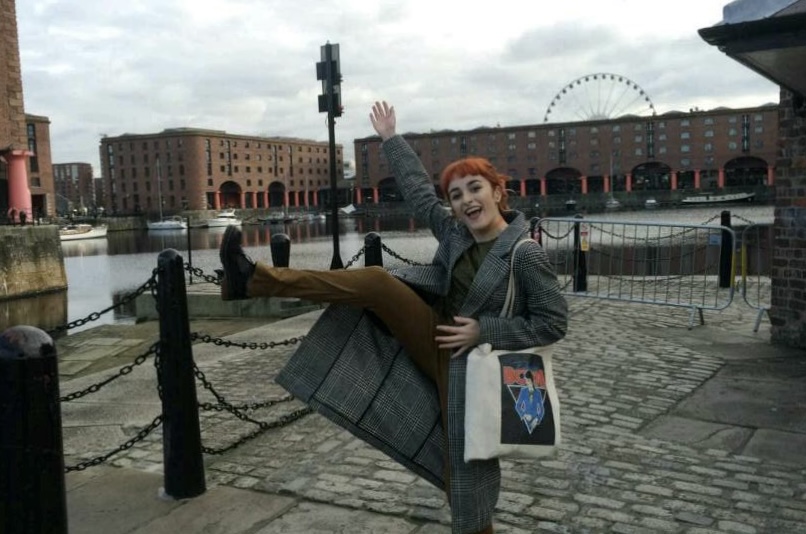The miserable world of clickbait — and why I joined The Post

A note from Abi, the new recruit at Post HQ
Two years ago, I got my first full-time journalism job at a newspaper in West Yorkshire, a big regional title with a good reputation. I thought I knew what it would be like: I’d watched any number of shows and films that depicted newsrooms bustling with glamorously harassed journalists, all frantically filing copy for tomorrow’s edition.
I wanted it all — the Hollywood version of events, anyway. I wanted covert meetings with sources in alleyways; I hoped to open my email inbox to find it jammed with potential big scoops via anonymous emails. On heading to work the first day, the bubble burst.

My colleagues were lovely and made me feel right at home. But they were also profoundly disillusioned with their work, and it didn’t take me long to get to the bottom of why. The newspaper was owned by one of the big companies that control the vast majority of regional news in the UK. And it suffered from exactly the problem that all of these companies do: an obsession with chasing online traffic and a modus operandi of getting lots of young journalists to churn out massive volumes of stories in order to get that traffic.
I was expected to produce a minimum of three stories per day, but often wrote more like five. This sort of output is often — uncharitably but truthfully — referred to as “churnalism”. It’s all in the word: this number of stories meant it wasn’t possible to spend time researching the topics I cared about; I didn’t have enough time to head out and do the kind of on the ground reporting that leads to valuable stories. Instead I just had to bash something, anything, out.
I might as well have been manacled to my sofa, because that’s where I spent all my time, rewording descriptions from Rightmove for the latest “property spotlight” or rewriting a press release from a local business or from the council. That was my nine to five, and as a freshly graduated 21-year-old living by herself, I’d never felt so alone.
I had always been confident that I was a decent writer — my time as a freelancer in the preceding years had shown me that — but as the months rolled by I felt doubt creep in. What was my worry? Maybe that unlike riding a bike, writing good articles was something I could forget how to do. I wanted to take on bigger stories, maybe even pick up some freelancing on the side, but as my page view targets crept higher every month, I didn’t have any time to put myself to the test.
A year into working there, I decided it had all been a huge mistake. My years at university studying journalism? A waste — this clearly wasn’t the career path for me. I started talking to my colleagues, many of whom felt the same, but we all agreed there was very little we could do to change things.

Our audiences wanted this quick, mechanical content, we’d tell ourselves. This is our only choice. It was only when I began to question the model of mainstream news that I realised this perception of our audience was wrong.
One day, scrolling through our social media channels, I realised something uncomfortable. In actual fact, most of our readers resented us for what we’d churn out on a daily basis. They might click, because the headlines were alluring and the stories were about topics they wanted to know about, but they would often leave comments like “You call this real journalism?” and “I wouldn’t wipe my arse with this”.
They didn’t seem to enjoy reading hastily-produced journalism any more than we enjoyed churning it out. There was a joylessness in writing that stuff that clearly showed through — not to mention the robotic element of trying to sledgehorn in trending phrases and buzzwords that would make the stories perform better on Google.
At this point, the jig was up. What was the point sweating over re-wording a press release, when the people we were writing it for didn’t even enjoy it? I started looking for other jobs, and was fortunate enough to find The Post.
One thing that attracted me to working here was that The Post is primarily reader-funded rather than ad-funded. It doesn’t pursue the fairytale of “free” journalism, a model that has visibly driven down quality in local media as the big publishing companies pursue scale rather than fostering a connection with readers.
Because no journalism is free, not really. You have to pay writers, photographers, editors, sub-editors. So if you’re not paying for what you read, you can bet you’re paying another way, whether it’s by having your reading experience constantly punctuated by ads or by having journalists write so many articles that they’re unable to do any actual reporting.
I was excited by the fact The Post paywalled some of its work, because I knew what that meant: decent pay, a chance to work on thoughtful longform journalism and the opportunity to do some real storytelling.

It’s been a little under a fortnight since I joined the team but it’s amazing how different my working day is now. In an average week at The Post I’m expected to file one or two stories, rather than 15. And they’re the kinds of stories that are supposed to make Merseyside a better, more transparent place. I have time to make dozens of calls for a story, go hunting for documents and make trips to interview people in person. That’s the foundation of why The Post has made such a massive impact so early in its life — it allows journalists to do journalism again.
I must admit, producing longform journalism about the city I love seemed like a bit of a pipe dream just six months ago, but already I feel things are being set in motion. Everything feels impossibly exciting.
Of course I appreciate anyone who reads my work or who subscribes to The Post or who shares our articles on social media — you clearly value thoughtful journalism. But, if I’m honest, kind words and tweets — while lovely and well intentioned — do not pay our bills. Only paid subscriptions do that.
If you value the sort of work we do here, I hope you’ll vote with your wallet. I understand that times are hard and not every person on this list will be financially able to subscribe. But we can only keep going, we can only become the huge, bustling newsroom we’re hoping for — that Liverpool deserves and needs — with your help.
If you read us regularly and enjoy what we put out, please subscribe today.
Thank you,
Abi

Comments
Latest
Is Williamson Square Liverpool's own Times Square?
A chaotic afternoon with Reform’s newest Wirral recruits
As Chinese car-making booms, Liverpool spots a chance to reindustrialise
Rent hikes, VHS tapes and a controversial screening of Jaws: Inside the fight over Toxteth TV
The miserable world of clickbait — and why I joined The Post
A note from Abi, the new recruit at Post HQ